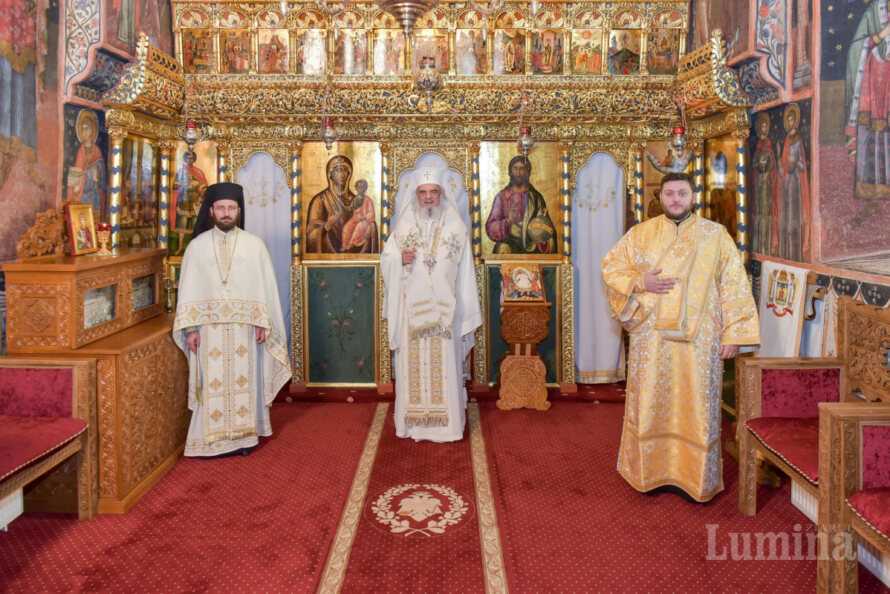Romanina Patriarchate
“It is unnatural and unworthy when we do not thank God for the gift of life and health and the benefits received from Him and when we do not thank the benefactors who helped us in life in various difficult times,” Patriarch Daniel said during his sermon last Sunday.
In his speech at the Chapel of Saint George at the Patriarchal Residence, the Patriarch of Romania explained why gratitude is the naturalness of human dignity.
The Saviour Jesus Christ shows the right behaviour toward God and toward people who have been sent by God to help other people. “This gospel is a lesson of the gratitude we receive from the humble Samaritan, one of the ten healed lepers,” Patriarch Daniel said offering his reflections on the passage from Luke about the cleansing of ten lepers.
“This Samaritan through his humility and gratitude is the character who becomes for us a teacher of gratitude. The Saviour Jesus Christ performed many miracles, and through these miracles, there were also healings of lepers.”
Leprosy
The Saviour Jesus Christ does not ask the ten lepers whether they have faith or not, nor does He heal them directly, but sends them to present themselves directly to the priests, said the Patriarch, who clarified the infectious disease known as leprosy.
“According to the old law, leprosy was a severe disease, because it manifested itself with the loss of parts of the human body. It was a slow degradation of the human body before death.”
“These lepers were isolated from the rest of the community because the disease was contagious. Old Testament priests had enough knowledge to identify this disease. In general, leprosy is only miraculously healed by God’s mercy, based on the faith of the sick.”
“The lepers were suffering a lot. They were sick from their body’s degradation, a slow degradation, but they were also suffering from isolation and humiliation. They had an obligation to tell everyone who passed by them: unclean, unclean.”

Jesus Christ did not heal them directly for two reasons:
- “By sending them to show themselves to the priests, as the Law of Moses provided, the Saviour shows His humility. He did not come to break the law, but to observe it and then to make it perfect”;
- “The Saviour Jesus Christ gives lepers the freedom to be or not to be grateful.”
Patriarch Daniel reiterated that all ten lepers had been healed.
“But nine of the ten who were healed did not return to thank God and Jesus through whom God worked, but hurried to go and show themselves to the priests so that the priests would see the healing, and allow them to reintegrate into the communities they had previously been part of.”
Gratitude
Patriarch Daniel carried on his speech, referring to the virtue of gratitude.
“The Saviour Jesus Christ, though not seeking praise and thanksgiving from men, nevertheless shows us that gratitude to God for the benefits received from Him, but also thanksgiving to those through whom God often works to help us, is a necessity; it is an act of spiritual health.”
“Gratitude is the state of human spiritual health. That is why the highest prayer and action of the Church is called the Divine Eucharistic Liturgy. In Greek, it means gratitude. The culminating moment of gratitude in the service of the Divine Liturgy is that of the prayer by which we say: It is proper and right to hymn You, to bless You, to praise You, to give thanks to You, which can be more correctly translated, It is right and worthy to thank You for the benefactions received from You, shown and not shown, known and unknown.”
The day’s gospel reading urges gratitude. And we must show gratitude to God primarily because we exist, His Beatitude stressed.
“It was not mandatory to have heaven and earth, air, water, light, the heat of the sun, the fruits of the earth. They were not dictated by man but were received by man from God the Creator, the Maker of heaven and earth. Without air, water, food, man dies!”
“Therefore, we must thank God for the existence of the universe, the earth, and for the existence of the elements that make life possible. When we use the goods created by God and forget the Creator, then we become unworthy.”
“When we do not thank God and our fellow people, we degrade ourselves spiritually, because through gratitude to God and our neighbours we enrich ourselves in the communion of love to God through prayer and to our neighbours through thanksgiving as a good deed and so we may grow spiritually,” His Beatitude said Jan. 17.
Photography courtesy of Basilica.ro / Files


Δεν υπάρχουν σχόλια:
Δημοσίευση σχολίου
Σημείωση: Μόνο ένα μέλος αυτού του ιστολογίου μπορεί να αναρτήσει σχόλιο.